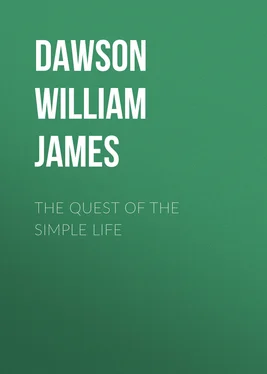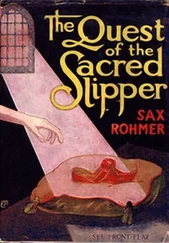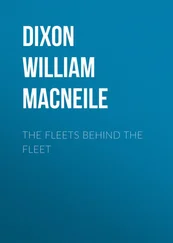William Dawson - The Quest of the Simple Life
Здесь есть возможность читать онлайн «William Dawson - The Quest of the Simple Life» — ознакомительный отрывок электронной книги совершенно бесплатно, а после прочтения отрывка купить полную версию. В некоторых случаях можно слушать аудио, скачать через торрент в формате fb2 и присутствует краткое содержание. Жанр: foreign_prose, foreign_antique, на английском языке. Описание произведения, (предисловие) а так же отзывы посетителей доступны на портале библиотеки ЛибКат.
- Название:The Quest of the Simple Life
- Автор:
- Жанр:
- Год:неизвестен
- ISBN:нет данных
- Рейтинг книги:4 / 5. Голосов: 1
-
Избранное:Добавить в избранное
- Отзывы:
-
Ваша оценка:
- 80
- 1
- 2
- 3
- 4
- 5
The Quest of the Simple Life: краткое содержание, описание и аннотация
Предлагаем к чтению аннотацию, описание, краткое содержание или предисловие (зависит от того, что написал сам автор книги «The Quest of the Simple Life»). Если вы не нашли необходимую информацию о книге — напишите в комментариях, мы постараемся отыскать её.
The Quest of the Simple Life — читать онлайн ознакомительный отрывок
Ниже представлен текст книги, разбитый по страницам. Система сохранения места последней прочитанной страницы, позволяет с удобством читать онлайн бесплатно книгу «The Quest of the Simple Life», без необходимости каждый раз заново искать на чём Вы остановились. Поставьте закладку, и сможете в любой момент перейти на страницу, на которой закончили чтение.
Интервал:
Закладка:
CHAPTER II
GETTING THE BEST OUT OF LIFE
The reader will perhaps say that the kind of miseries recounted in the previous chapter are more imaginary than real. Many thousands of people subsist in London upon narrow means, and do not find the life intolerable. They have their interests and pleasures, meagre enough when judged by a superior standard, but sufficient to maintain in them some of the vivacity of existence. No doubt this is true. I remember being struck some years ago by the remark of a person of distinction, equally acquainted with social life in its highest and its lowest forms. Mr. H., as I will call this person, said that the dismal pictures drawn by social novelists of life among the very poor were true in fact, but wrong in perspective. Novelists described what their own feelings would be if they were condemned to live the life of the disinherited city drudge, rather than the actual feelings of the drudge himself. A man of education, accustomed to easy means, would suffer tortures unspeakable if he were made to live in a single room of a populous and squalid tenement, and had to subsist upon a wage at once niggardly and precarious. He would be tormented with that memory of happier things, which we are told is a 'sorrow's crown of sorrow.' But the man who has known no other condition of life is unconscious of its misery. He has no standard of comparison. An environment which would drive a man of refinement to thoughts of suicide, does not produce so much as dissatisfaction in him. Hence there is far more happiness among the poor than we imagine. They see nothing deplorable in a lot to which they have become accustomed; they are as our first parents before their eyes were opened to a knowledge of good or evil; or, to take a less mythical illustration, they are as the contented savage, to whom the refinements of European civilisation are objects of ridicule rather than envy.
I quote this opinion for what it is worth; but it has little relevance to my own case. I am the only competent judge of my own feelings. I know perfectly well that these feelings were not shared by men who shared the conditions of my own life. There was a clerk in the same office with me who may be taken as an example of his class. Poor Arrowsmith—how well I recall him!—was a little pallid man, always neatly if shabbily dressed, punctual as a clock, and of irreproachable diligence. He was verging on forty, had a wife and family whom I never saw, and an aged mother whom he was proud to support. He was of quite imperturbable cheerfulness, delighted in small jokes, and would chatter like a daw when occasion served him. He had never read a book in his life; his mind subsisted wholly upon the halfpenny newspapers. He had no pleasures, unless one can count as such certain Bank Holiday excursions to Hampstead Heath, which were performed under a heavy sense of duty to his family. He had lived in London all his days, but knew much less of it than the country excursionist. He had never visited St. Paul's or Westminster Abbey; had never travelled so far as Kew or Greenwich; had never been inside a picture gallery; and had never attended a concert in his life. The pendulum of his innocuous existence swung between the office and his home with a uniform monotony. Yet not only was he contented with his life, but I believe that he regarded it as entirely successful. He had counted it a great piece of luck when he had entered the office as a youth of sixteen, and the glow of his good fortune still lingered in his mind at forty. He regarded his employers with a species of admiring awe not always accorded to kings. The most violent social democrat could have made nothing of Arrowsmith; there was not the least crevice in his heart in which the seed of discontent could have found a lodgment. As for making any question of whether he was getting the best or most out of life, Arrowsmith was as incapable as a kitten.
The virtues of Arrowsmith, which were in their way quietly heroic, impressed me a good deal; but his abject contentment with the limitations of his lot appalled me. I felt a dread grow in me lest I should become subdued to the element in which I worked as he was. I asked myself whether a life so destitute of real interests and pleasures was life at all? I made fugitive attempts to allure the little man into some realms of wider interest, but with the most discouraging results. I once insisted on taking him with me for a day in Epping Forest. He came reluctantly, for he did not like leaving his wife at home, and it seemed that no persuasion could induce her to undertake so adventurous a jaunt. He was no walker, and half a dozen miles along the Forest roads tired him out. By the afternoon even his cheerfulness had vanished; he gazed with blank and gloomy eyes upon the wide spaces of the woodland scenery. He did not regain his spirits till we drew near Stratford on the homeward journey. At the first sight of gas-lit streets he brightened up, and I am persuaded that the rancid odours of the factories at Bow were sweeter in his nostrils than all the Forest fragrances. I never asked him again to share a pleasure for which I now perceived he had no faculty; but I often asked myself how long it would take for a city life to extirpate in me the taste by which Nature is appreciated, as it had in Arrowsmith.
I have taken Arrowsmith as an example of the narrowness of interest created by a city life, and it would be easy to offer an apology for him, which I, for one, would most heartily endorse. The poor fellow was very much the creature of his circumstances. But this was scarcely the case with another man I knew, whose circumstances, had he known how to use them, might have afforded him the opportunity of many cultivated tastes. He was the son of a small farmer, born in the same village as myself. By some curious accident he was flung into the vortex of London life at seventeen, and became a clerk in a reputable firm of stockbrokers in Throgmorton Street. He rose rapidly, speculated largely and successfully for himself, became a partner, and was rich at thirty. I used to meet him occasionally, for he never forgot that we had sat upon the same bench at school. I can see him still; well-fleshed and immaculately dressed; his waistcoat pockets full of gold; a prop of music-halls, a patron of expensive restaurants; flashing from one to the other in the evening hours in swift hansoms; a man envied and admired by a host of clerks in Throgmorton Street to whom he appeared a kind of Napoleon of finance. I will confess that I myself was a little dazzled by his careless opulence. When he took me to dine with him he thought nothing of giving the head waiter a sovereign as a guarantee of careful service, or of sending another sovereign to the master of the orchestra with a request for some particular piece of music which he fancied. He once confided to me that he had brought off certain operations which had made him the possessor of eighty thousand pounds. To me the sum seemed immense, but he regarded it as a bagatelle. When I suggested certain uses for it, such as retirement to the country, the building of a country house, the collection of pictures or of a library, he laughed at me. He informed me that he never spent more than a single day in the country every year; it was spent in visiting his father at the old farm. He loathed the quiet of the country, and counted his one day in the year an infliction and a sacrifice. Books and pictures he had cared for once, but as he now put it, he had 'no use for them.' It seemed that all his eighty thousand pounds was destined to be flung upon the great roulette table of stock and share speculations. It was not that he was avaricious; few men cared less for money in itself; but he could not live without the excitement of speculation. 'I prefer the air of Throgmorton Street to any air in the world,' he observed. 'I am unhappy if I leave it for a day.' So far as knowledge of or interest in London went, he was not a whit better than poor shabby Arrowsmith. His London stretched no further than from the Bank to Oxford Circus, and the landmarks by which he knew it were restaurants and music-halls.
Читать дальшеИнтервал:
Закладка:
Похожие книги на «The Quest of the Simple Life»
Представляем Вашему вниманию похожие книги на «The Quest of the Simple Life» списком для выбора. Мы отобрали схожую по названию и смыслу литературу в надежде предоставить читателям больше вариантов отыскать новые, интересные, ещё непрочитанные произведения.
Обсуждение, отзывы о книге «The Quest of the Simple Life» и просто собственные мнения читателей. Оставьте ваши комментарии, напишите, что Вы думаете о произведении, его смысле или главных героях. Укажите что конкретно понравилось, а что нет, и почему Вы так считаете.












